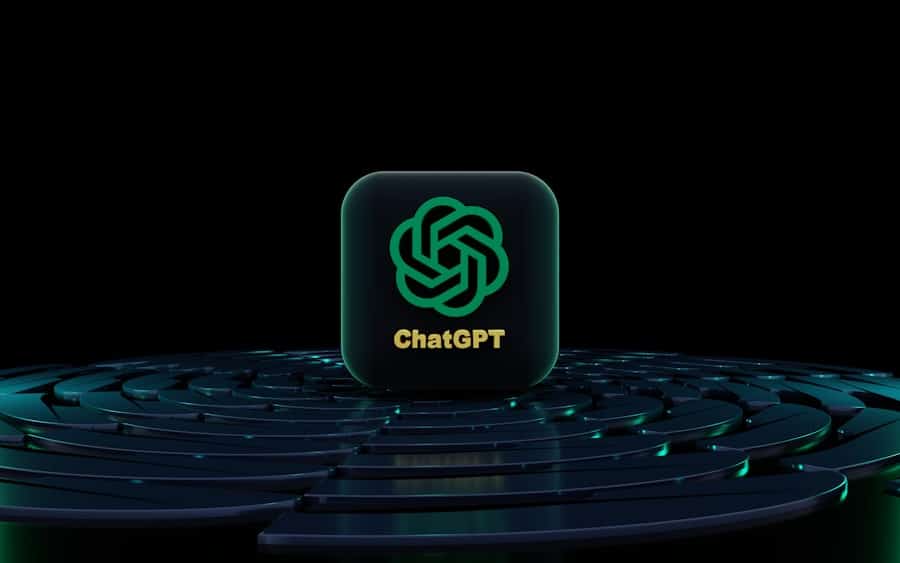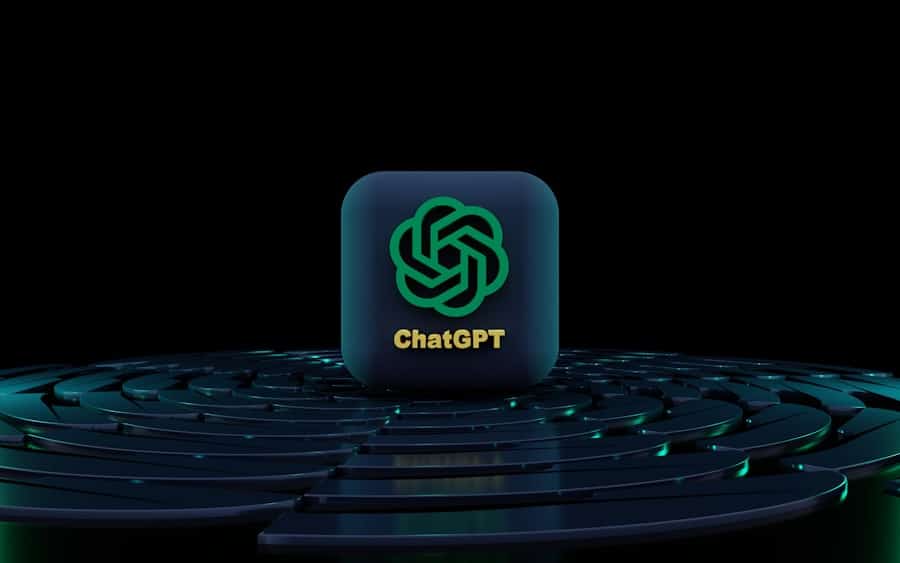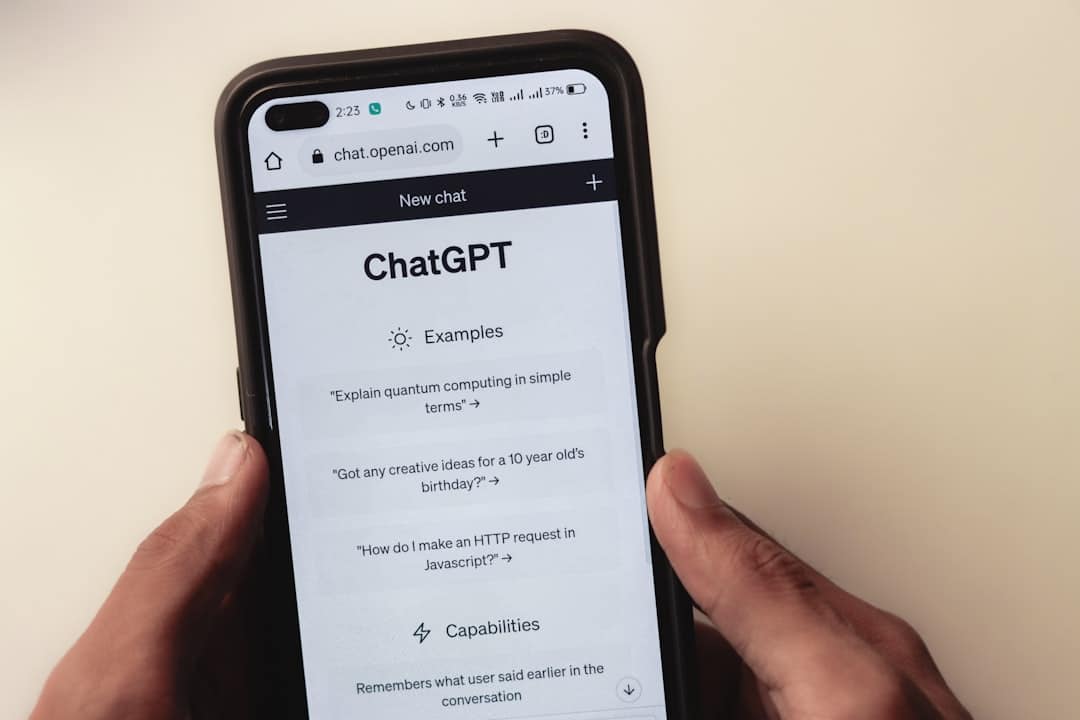In recent years, the integration of technology into educational environments has transformed the way institutions interact with students. Among the most significant advancements is the emergence of chatbots, which have become increasingly prevalent in student support services. These AI-driven tools are designed to facilitate communication, provide information, and assist students in navigating various aspects of their academic journey.
By leveraging natural language processing and machine learning, chatbots can engage with students in real-time, offering immediate responses to inquiries that range from administrative questions to academic guidance. The adoption of chatbots in educational settings is not merely a trend; it reflects a broader shift towards digitalization in higher education. As students become more accustomed to instant access to information through their smartphones and other devices, the demand for efficient and responsive support systems has grown.
Chatbots serve as a bridge between traditional support services and the expectations of a tech-savvy student body. They can handle a multitude of queries simultaneously, reducing wait times and alleviating the burden on human staff, who can then focus on more complex issues that require personal attention.
Key Takeaways
- Chatbots are AI-powered tools that can provide instant support to students in various areas such as enrollment, financial aid, and academic advising.
- Chatbots can improve student support by providing quick and accurate responses, reducing wait times, and offering support outside of regular office hours.
- Chatbots can enhance student engagement by providing personalized recommendations, reminders, and proactive support based on students’ needs and preferences.
- Chatbots play a crucial role in providing 24/7 support to students, ensuring that they can access assistance and information at any time of the day or night.
- Chatbots can offer personalized assistance to students by analyzing their behavior, preferences, and past interactions to provide tailored support and guidance.
The Benefits of Chatbots for Student Support
One of the most compelling advantages of chatbots in student support services is their ability to provide immediate assistance. Students often seek quick answers to pressing questions, whether they pertain to course registration, financial aid, or campus resources. Chatbots can deliver instant responses, ensuring that students do not have to wait for office hours or navigate through lengthy phone menus.
This immediacy not only enhances the student experience but also fosters a sense of accessibility and support that is crucial for academic success. Moreover, chatbots can operate at scale, handling thousands of inquiries simultaneously without compromising the quality of service. This capability is particularly beneficial during peak times, such as enrollment periods or exam seasons when student inquiries tend to surge.
By automating routine tasks and frequently asked questions, chatbots free up human advisors to concentrate on more nuanced student needs, thereby improving overall efficiency within support services. Institutions can allocate resources more effectively, ensuring that students receive the attention they require when they need it most.
How Chatbots Can Improve Student Engagement

Engagement is a critical factor in student retention and success. Chatbots can play a pivotal role in enhancing this engagement by providing personalized interactions that resonate with students. For instance, chatbots can initiate conversations based on user behavior or specific triggers, such as a student logging into their account for the first time or nearing a deadline for course registration.
By proactively reaching out, chatbots can guide students through processes and encourage them to take necessary actions, thereby fostering a more engaged learning environment. Additionally, chatbots can facilitate ongoing communication between students and their institutions. They can send reminders about important dates, such as application deadlines or upcoming events, and provide updates on academic progress or campus activities.
This continuous interaction helps keep students informed and connected to their institution, which is essential for building a sense of community. Furthermore, by utilizing data analytics, chatbots can tailor their interactions based on individual student profiles, preferences, and past interactions, creating a more personalized experience that enhances engagement.
The Role of Chatbots in Providing 24/7 Support to Students
One of the most significant advantages of chatbots is their ability to provide round-the-clock support. Unlike traditional support services that operate within specific hours, chatbots are available 24/7, allowing students to seek assistance whenever they need it. This is particularly important for non-traditional students who may have work or family commitments that limit their availability during standard office hours.
By offering constant access to information and support, chatbots ensure that all students have the resources they need at their fingertips. The availability of 24/7 support also addresses the diverse needs of a global student population. Many institutions attract international students who may be in different time zones or have varying schedules.
This level of accessibility not only enhances the overall student experience but also demonstrates an institution’s commitment to supporting its diverse community.
Chatbots and Personalized Student Assistance
Personalization is a key trend in education, as institutions strive to meet the unique needs of each student. Chatbots are well-equipped to deliver personalized assistance by utilizing data analytics and machine learning algorithms. By analyzing student interactions and preferences, chatbots can tailor their responses and recommendations accordingly.
For example, if a student frequently asks about scholarship opportunities, the chatbot can proactively provide information about relevant scholarships or financial aid options based on the student’s profile. Furthermore, chatbots can assist in academic advising by offering personalized course recommendations based on a student’s major, interests, and academic performance. This level of tailored support not only enhances the student experience but also empowers students to make informed decisions about their educational paths.
By providing customized assistance, chatbots help foster a sense of ownership over one’s academic journey, encouraging students to engage more deeply with their studies.
Overcoming Challenges in Implementing Chatbots in Student Support Services

Despite the numerous benefits that chatbots offer, implementing them in student support services is not without challenges. One significant hurdle is ensuring that the chatbot is equipped with accurate and comprehensive information. If a chatbot provides incorrect or outdated responses, it can lead to frustration among students and undermine trust in the system.
Institutions must invest time and resources into developing a robust knowledge base that the chatbot can draw from, regularly updating it to reflect changes in policies or procedures. Another challenge lies in integrating chatbots with existing systems and platforms used by institutions. For chatbots to be effective, they must be able to access relevant data from various sources, such as student information systems or learning management systems.
This requires careful planning and collaboration between IT departments and support services to ensure seamless integration. Additionally, institutions must consider how to balance chatbot interactions with human support; while chatbots can handle routine inquiries, there will always be situations that require human empathy and understanding.
Best Practices for Utilizing Chatbots in Student Support Services
To maximize the effectiveness of chatbots in student support services, institutions should adhere to several best practices. First and foremost, it is essential to clearly define the chatbot’s purpose and scope. Institutions should identify specific areas where chatbots can add value—such as answering FAQs or providing information about campus resources—and ensure that these functions are well-communicated to students.
Training is another critical aspect of successful chatbot implementation. Institutions should invest in training staff members who will oversee the chatbot’s operations and ensure they understand how to interpret data analytics generated by the chatbot’s interactions with students.
Additionally, institutions should actively seek feedback from students regarding their experiences with the chatbot. Surveys or focus groups can provide valuable insights into how well the chatbot meets student needs and where enhancements may be necessary. By fostering an iterative approach to development and improvement, institutions can ensure that their chatbot remains relevant and effective over time.
The Future of Chatbots in Student Support Services
As technology continues to evolve, so too will the capabilities of chatbots in student support services. The future holds exciting possibilities for enhancing these AI-driven tools through advancements in artificial intelligence and machine learning. For instance, natural language processing technologies are becoming increasingly sophisticated, allowing chatbots to understand context and nuance better than ever before.
This will enable them to engage in more meaningful conversations with students and provide even more accurate responses. Moreover, as institutions increasingly embrace data-driven decision-making, chatbots will likely play a central role in gathering insights about student behavior and preferences. By analyzing interaction data, institutions can identify trends and patterns that inform strategic initiatives aimed at improving student success rates.
The integration of chatbots with emerging technologies such as virtual reality (VR) or augmented reality (AR) could also create immersive experiences for students seeking guidance or information. In conclusion, the future of chatbots in student support services appears promising as they continue to evolve alongside technological advancements. Their potential to enhance engagement, provide personalized assistance, and offer 24/7 support positions them as invaluable tools for educational institutions striving to meet the needs of today’s diverse student populations.
As these technologies develop further, they will undoubtedly reshape the landscape of student support services for years to come.
In the rapidly evolving landscape of educational technology, chatbots are increasingly being integrated into student support services to enhance accessibility and efficiency. These AI-driven tools offer personalized assistance, streamline administrative tasks, and provide 24/7 support, making them invaluable assets in educational institutions. For those interested in optimizing content related to educational technology and AI, the article on Boost Your Content with NeuronWriter: SEO & NLP Optimization provides insights into leveraging advanced tools for content enhancement. This resource can be particularly useful for educators and administrators looking to effectively communicate the benefits of chatbots in student support services.
FAQs
What are chatbots?
Chatbots are computer programs designed to simulate conversation with human users, especially over the internet. They are often used to provide automated customer support or to facilitate interactions on websites and social media platforms.
How are chatbots used in student support services?
Chatbots are used in student support services to provide quick and efficient responses to common student inquiries, such as admissions information, financial aid questions, course registration, and campus resources. They can also assist with scheduling appointments, providing reminders, and offering general guidance.
What are the benefits of using chatbots in student support services?
Some benefits of using chatbots in student support services include 24/7 availability, quick response times, consistent information delivery, and the ability to handle multiple inquiries simultaneously. Chatbots can also help reduce the workload on human support staff and free them up to focus on more complex student needs.
Are there any limitations to using chatbots in student support services?
While chatbots can handle many routine inquiries, they may struggle with understanding complex or nuanced questions, and they may not be able to provide the same level of empathy and understanding as a human support staff member. Additionally, chatbots require regular maintenance and updates to ensure they are providing accurate and up-to-date information.
How can chatbots be integrated into existing student support services?
Chatbots can be integrated into existing student support services through websites, mobile apps, and social media platforms. They can also be programmed to work with existing student information systems and databases to provide personalized and relevant information to students.

